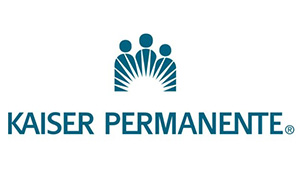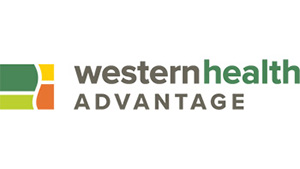- Annual Enrollment Coming Soon!
- Employee Assistance Program
-
- New Employee Resources
- Benefit Summaries by Bargaining Unit
- Medical
- Dental
- Vision
- Life Insurance
- Long Term Disability
- Flexible Spending Account
- Health Reimbursement Arrangements
- Deferred Compensation
- Staff Development & Wellness
- Employee Regional Park Membership
- Clean Commute
- Home Purchasing Loan Programs
- Benefit Forms, Plan Documents and Important Information
- Benefit Guides
- Mid-Year Enrollment Changes
- Wellness Resources
- CareCounsel Health Advocacy
- Sonoma County Employees Retirement Association
- Website Accessibility Assistance
- Back to Employee Benefits
Employee Medical Plan Options

The County of Sonoma recognizes that every employee and their family's needs are unique. With four different health plan carriers, the County offers PPO and HMO plans to ensure your family has access to the services that best suit their needs.
PPO Plans -County Health Plan (CHP) PPO plans are self-insured plans administered by Anthem Blue Cross and CVS Caremark (pharmacy services). The PPO plans offer health coverage to residents throughout the US. These plans allow you to visit in-network physicians, specialists, and medical laboratories of your choosing without the need for referral. While it is always financially beneficial to utilize in-network services, you may be able to utilize out-of-network services (depending on the plan you choose).
HMO Plans - The County offers HMO plans with Kaiser Permanente, Sutter Health Plan and Western Health Advantage. You must live or work in the providers service area to be eligible for an HMO plan. HMO plans require a Primary Care Physicians referral for specialist and medical laboratory services. HMO plans generally offer a lower monthly premium than a PPO plan.
PPO Plans - County Health Plan (CHP)
Exclusive Provider Organization (EPO)
The CHP EPO is an Exclusive Provider Organization (EPO). The EPO is a network of Hospitals, Physicians, medical laboratories, and other Health Care Providers who are located within a Service Area and who have agreed to provide Medically Necessary services and supplies for favorable negotiated discount fees applicable only to EPO Plan participants.
- All care in the County Health Plan EPO must be obtained within the plan network, except if you have an authorized referral from a network provider or if you have an emergency.
The EPO Plan offers you affordable out-of-pocket costs, with access to the doctors and hospitals you trust. You are free to visit any doctor or hospital in the EPO network where you pay an affordable copay or deductible, without the hassle of filling out claim forms. Covered services must be provided by EPO network providers. Most doctor and specialist office visits are available at a $50 copay and most in-network preventive services, such as well baby/child visits, routine physicals, mammograms, and routine preventive screenings are covered at no cost. Other in-network services are covered at 80% after the deductible ($500 per individual or $1,500 per family) is met.
Preferred Provider Organization (PPO)
The CHP PPO is a Preferred Provider Organization (PPO). A PPO is a medical plan that offers you a choice between an in-network group of providers who offer their services at discounted rates and out-of-network providers without discounted rates. Under a PPO plan, you may choose the level of benefits you receive based on the providers you use when you receive care. Most in-network doctor and specialist office visits are available at a $20 copay and most in-network preventive services such as well baby/child visits, immunizations, routine physicals, mammograms, and routine preventive screenings are covered at no cost. Other in-network services are covered at 90% after the deductible ($300 per individual or $900 per family) is met.
HMO Plans - Kaiser Permanente, Sutter Health Plan and Western Health Advantage
Traditional HMO
The Traditional HMO plans have a higher monthly premium with no deductible, low copays, and a lower out of pocket annual maximum, making your total annual expenses more predictable. Hospitalization, radiology, lab tests and most preventive services are also covered at no cost. Generally, specialist services require a referral from your primary care physician (PCP) and you must use the provider’s network unless you have an out-of-area urgent or emergency situation or an approved referral.
Hospital Services DHMO
The Hospital Services DHMO plans offer a lower monthly premium with deductibles only on hospital related services, including emergency room visits, inpatient stays, and outpatient surgery. You pay the full cost of these services up to the deductible then a 20% coinsurance until you reach your out-of-pocket maximum. The out-of-pocket maximum includes the calendar year deductible, copays, and coinsurance. Physician and specialist visits, radiology, lab tests, and prescriptions have a flat copay, without having to meet the deductible. Preventative services are covered at no cost.
Deductible First HDHP
The Deductible First HDHP plans offer the lowest monthly premium and requires a member to meet the calendar year deductible FIRST before ANY plan benefits will be paid, except covered preventive services. Members will pay 100% of the doctor office visits, radiology services, lab tests, prescriptions, hospitalizations, etc., until the calendar year deductible is met. Once the deductible is met, covered medical, hospital, and prescription benefits will be provided for a copay or coinsurance amount. The calendar year out-of-pocket maximum includes calendar year deductibles, copays, and coinsurance.
Please Note: Dependents will not be able to contribute to an HSA through their employer if enrolled in a Deductible First HDHP plan. If you (the employee) elect to enroll in the Deductible First HDHP, which qualifies as a HSA qualified high deductible health plan, and you have a Flexible Spending Account (FSA) and/or a Health Reimbursement Arrangement (HRA), be advised that under IRS rules you are NOT allowed to contribute to a Health Savings Account (HSA). Because FSA and HRA accounts can be used to reimburse your out-of-pocket medical expenses, the IRS does not allow you to also contribute to a HSA at the same time, as it is considered prohibited health coverage. While the County does not offer an HSA, this rule applies to all enrolled dependents in this plan.
Learn More About the Health Plan Carriers
County Health Plan (CHP) - Closed to New Enrollees
The County Health Plan (CHP) is a self-insured PPO plan. PPO plans allow you to seek services and specialists without a referral from your Primary Care Physician. CHP is available throughout the US.
Effective June 1, 2024
Beginning with the 2024-2025 plan year, the CHP plan will no longer allow new enrollments. Employees currently enrolled in the CHP plan can remain on the plan. Enrolled employees who switch to another medical provider, will not be able to return to the CHP plan at a later date.
Kaiser Permanente
Kaiser Permanente is an HMO Provider. HMO plans require a referral from your primary care provider when seeking services and specialists. You must live or work within the Kaiser network to enroll in a Kaiser plan.
DigiDeck - Interactive Guide
Retirees in Hawaii or Northwest Regions - Start Here
Sutter Health Plan
Sutter Health Plan is a HMO Provider. HMO plans require a referral from your primary care provider when seeking services and speciailists. You must live or work within Sutter's network to enroll in a Sutter Health Plan plan.
Video Presenation (12:04 minutes)
Western Health Advantage
Western Health Advantage is a HMO Provider. HMO plans require a referral from your primary care provider when seeking services and speciailists. You and each of your dependents must live or work within Western Health Advantage's network to enroll in a Western Health Advantage plan.
Western Health Advantage Microsite
Video Presentation (8:31 minutes)
No Surprises: Understand your rights against surprise medical bills
The No Surprises Act protects people covered under group and individual health plans from receiving surprise medical bills when they receive most emergency services, non-emergency services from out-of-network providers at in-network facilities, and services from out-of-network air ambulance service providers.
For more information, review Your Rights and Protections Against Surprise Medical Bills.


